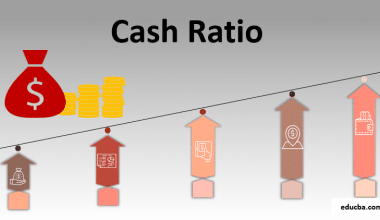An enterprise is commonly known as a for-profit corporation or company. However, it is most commonly linked with entrepreneurial businesses. People who are successful entrepreneurs are generally referred to as “enterprising.” Here’s a comprehensive guide to all that enterprise encompasses and how you can build a successful one.
What is an Enterprise?
An enterprise is a for-profit firm founded and operated by an entrepreneur. And we frequently say that those who run such enterprises are enterprising. The word derives from the French word entreprendre (from prendre), which means “to undertake,” and the Latin “inter prehendere” (to seize with the hand).
Entrepreneurs typically establish a business, with all of the related risks, to make a profit for one of several reasons:
- Problem-solving. They notice a problem that they believe they can solve.
- Using their imagination. They have a new product or idea that they believe will be successful.
- Filling a void. They notice a market gap that they believe they can fill.
- Pricing is competitive. They feel they can create something cheaper on the market and sell it at a lower price.
- Knowledge-based. Where they believe they can provide customers with specialized information worth paying for.
Types of Enterprise
#1. Sole proprietorship
These can include ‘trade’ businesses like painters and decorators, as well as owners of a single retail location. And, in the present era, many internet businesses, from small ones selling things on Etsy or similar platforms to larger ones with a website and app, can fall into this category.
#2. Partnership
Partnerships are typically formed by a small group of people who share ownership and decision-making (as well as earnings). In other circumstances, such as law firms, each partner may add a specific specialty to the organization in order to broaden the overall services. There may be a form of hierarchy in some circumstances, with senior and junior partners.
#3. Private Limited Companies (Ltd.)
This type of free enterprise has been incorporated legally and will have its own legal identity. It will have a set of stockholders who will bear a limited proportion of the enterprise’s debts. Those shareholders will designate directors to monitor broad corporate operations and decisions, while relevant managers will oversee day-to-day operations.
#4. PLCs (Public Limited Companies)
PLCs, which are frequently confused with private limited corporations, vary in that shares in the company can be offered to the general public. To do so, they must meet certain regulatory and legal standards about the business’s financial health, the transparency of their accounting, the length of time they have been in operation, and other factors. The ability to sell public shares might be beneficial for raising revenue for purposes such as expansion.
How To Build An Enterprise Sales Strategy
Enterprise sales differs from B2C (Business-to-consumer) interactions in that it involves larger firms with more resources and greater internal complexity.
This implies you’ll need to create an enterprise sales strategy relevant to your industry and business. Here are some pointers on how to go about it.
#1. Set your goals
A plan is the greatest approach to ensure the success of your business sales strategy. Set goals and key results, define success for each goal, and then measure the results so they may be altered as needed. As an example:
- Increase your market share by 5% during the following two years.
- In the following 12 months, double your product revenue.
- In the following month, generate 100 new leads.
- Increase customer retention by 70%
It would be beneficial if you built your approach to assist you in achieving these objectives.
#2. Identify your customer’s needs and pain points
To comprehend your customer’s requirements, you must first identify who they are and where they are in the customer journey. This requires study and a clear definition of your target customer profile.
You should also conduct research on your target market, industry, and what they seek in a supplier.
It will be easier to build a strategy that suits your clients’ needs once you understand who they are and what they require. As an example:
A customer may want to know how much time they will save if you implement your solution rather than performing things by hand.
The company may be entering a new market and needs to identify its prospective clients.
A consumer may have had a negative encounter with another vendor and require the assistance of someone they can trust to resolve their issue.
#3. Create a lead generation strategy
You must construct a lead generation plan and build a pipeline of possible consumers after defining your target market and identifying your ideal customer. This entails devising a strategy for reaching your target market and generating interest in your product or service. As an example:
- Online marketing (SEO, PPC, and social media), cold calling, and sending cold emails are all methods for generating leads. There are several cold email templates available to assist you with this.
- Participate in trade exhibitions and industry events.
- Create material for your target market (blog articles, whitepapers, case studies).
- Use tools to tailor your approach, such as custom GIFs, unique films, or converting images into videos with customized messaging.
- Establish a strong social media presence.
#4. Make a value proposal
Your company’s unique selling proposition (USP) should be included in your enterprise sales plan. This distinguishes your firm from the competition and explains why clients should do business with you. It must be clear, concise, and simple to grasp.
#5. Use the correct channels
When it comes to corporate sales, not all sales channels are created equal. It is critical to select and target the ones that will be most effective. You should also ensure that you have a decent mix of online and physical outlets. As an example:
- You may be able to reach out to the company’s big consumer base via email or social media.
- Sales personnel may be required to travel onsite to meet with customers and inspect products in person.
- Potential clients may only be available through a third party, such as an agent or distributor.
#6. Implement a process and infrastructure
To manage enterprise sales successfully, you must have a procedure in place for everything from prospecting to completing the contract.
This includes having the appropriate sales tools and processes in place to track leads, manage customer relationships, and track results.
It would be ideal if your team additionally included individuals capable of handling the sophisticated needs of enterprise customers.
#7. Educate your prospective customers
It would be advantageous if you could additionally express your value offer in a way that is appealing to clients.
Enterprise clients are often more knowledgeable about the products or services they require, and they have a better understanding of what is expected of them when making a new purchase.
This involves concentrating your efforts on teaching potential clients about your product or service and being prepared to answer any questions they may have.
#8. Build relationships with the right people
When it comes to creating relationships with potential customers, enterprise sales likewise necessitate a significant amount of time and effort.
You must devote time to getting to know the personnel at these companies and understanding their business requirements.
In larger agreements, you may wish to map out the prospect’s firm and who is engaged in the purchasing decision so that other people involved in the sales process can catch up fast.
This process can take months or even years, so patience and perseverance are required.
#9. Be passionate about value, not just price
Enterprise consumers are typically less price-sensitive than small businesses, but that doesn’t mean they won’t bargain hard. They want to know that their money is being well spent and that your product will address their problem.
So, rather than focusing solely on the price, make sure you demonstrate the value of your product or service. Communicate the solution’s worth in terms of ROI and how it will benefit them in the long run.
#10. Remain consistent in your message
When dealing with large customers, it’s critical to have a consistent sales process in place to keep track of what you’re doing and ensure everything runs smoothly.
It would be ideal if you also had a clear strategy in place for engaging with potential customers and ensuring that all of your sales representatives were on the same page. When selling to major corporations, this will help you prevent any confusion or misinterpretation.
#11. Understand your prospect’s reaction to the deal
Because the enterprise sales process is more complex than selling to a small organization, you must understand your prospect’s reaction to the offer, the various stakeholders and their respective aims, the objectives of different departments, and overall company goals that are relevant to the purchase.
Enterprise sales frequently necessitate customisation, so be prepared to present an enterprise proposal that suits their specific requirements. You must collaborate as a partner, not merely as a vendor.
#12. Consistently market yourself
You must consistently sell your solution, regardless of whether your consumers are in the buying cycle. This implies you should be available for queries and follow-up calls at all times, as well as provide information about why your product is superior to others on the market. Furthermore, you must handle the sales process proactively and consistently cultivate the relationship with your prospects.
#13. Serve as a consultant to your clients
Enterprise sales necessitates acting as a consultant rather than a seller. To realize how your solution would help them reach their goals, you must first understand their business and the difficulties they are attempting to tackle.
Customers are more inclined to buy from you if they understand how you can assist them enhance their business.
#14. Be prepared for the close
To be successful in enterprise sales, you must constantly be prepared for the close.
This includes having all of the information the customer requires, answering any questions they may have, and ensuring the process runs as smoothly as possible.
A CRM that effortlessly records all of this information and any interaction with a prospect is a game changer for sales teams. A robust system for controlling your sales pipeline will make this process easier.
You must follow through on your promises and exceed the customer’s expectations. If you are unable to meet their requirements, it is advisable to recommend them to someone who can.
#15. Be aware of prospective failures
In enterprise sales, many things might go wrong; therefore, you must be prepared for anything. It is critical to recognize possible problems and have plans in place to deal with them if they arise. As an example:
- The company’s leadership may change or key workers may leave, thereby disrupting the sales process.
- The customer may opt for a competitor.
- There could be issues with the product’s or service’s delivery or deployment.
- The corporation may have financial difficulties and be unable to meet its obligations.
#16. Be aware of a long sales cycle
Selling to a large corporation often takes longer than selling to a small business. This is because there are more parties involved, and customers are often more hesitant to make a purchase.
It is preferable if you are willing to put time and resources into the sales process and have a robust system in place for managing your pipeline.
#17. Measure outcomes and adjust as necessary
One of the most crucial components of corporate sales is tracking your progress and modifying your strategy as needed. The amount of leads generated, conversion rate, average sale value, and client lifetime value are all common KPIs.
What are Enterprise Software Systems?
These information systems assist organizations in solving large-scale problems and are often big platforms that are too sophisticated for usage by individuals or small businesses.
Enterprise systems handle a variety of tasks within a company to simplify business and management reporting obligations. They are created for speed and scalability, and they may be deployed across a range of networks, including the Internet, intranets, and corporate networks. Companies that use enterprise software include:
- Big-box retailers
- Marketing firms
- Technology firms
However, the complexity of enterprise applications forces most businesses to outsource the development of applications required to run their businesses. After development, the applications are brought back in-house for deployment, which normally necessitates the involvement of a professional information technology team.
Types Of Enterprise Systems
Given the digital power of today’s marketplaces, three types of business systems are essential for corporations all over the world.
#1. Customer Relationship Management
Customer relationship management (CRM) software assists firms in communicating a consistent message about customer insights by obtaining the most up-to-date information about a lead. Data for CRM software usage is collected at every stage of the presale process, including sales and marketing, call centers, help desks, and customer support service.
Do you recall the pair of jeans? The database, which gets your client activity from the moment you hand over the merchandise to the cashier, is at the heart of the CRM. When a customer order is entered, an invoice is generated, a shipment is shipped, and refunds and exchanges are processed, the information is immediately stored into the database.
#2. Enterprise Resource Planning (ERP)
Enterprise Resource Planning (ERP) software is intended to streamline a company’s cross-functional procedures. This software enables businesses to avoid inconsistencies and duplications of work throughout operations, share data and standard practices across enterprises, and access information in real-time.
#3. Supply Chain Management Systems
Supply chain management systems are the third kind of corporate application. A supply chain is the collection of people, tasks, equipment, and other resources needed to manufacture and transport goods from a vendor to a client. These management systems promote integrated relationships among all places of sale for goods, services, and customers.
Supply management systems’ primary purpose is to coordinate the timely flow of information upstream and downstream of an organization. Some management systems may include purchasing, inventory management, product configuration, supplier scheduling, goods inspections, claims processing, and warehousing operations.
In Conclusion,
Enterprise sales is a complex process, but it is worthwhile if you can locate the proper customers and develop effective partnerships with them.
Most importantly, ensure that you can afford the extensive sales cycles involved. An enterprise purchase typically takes 18 months to finish, during which no money is earned.
- INFORMATION SYSTEMS: Meaning, Examples, Types & Courses
- ENTERPRISE RESOURCE PLANNING: (ERP) Examples, System, Function & Workday
- Email Marketing Platforms: Overview, Common Features, Comparisons
- Best Data Management Software For Your Small Business In 2023






